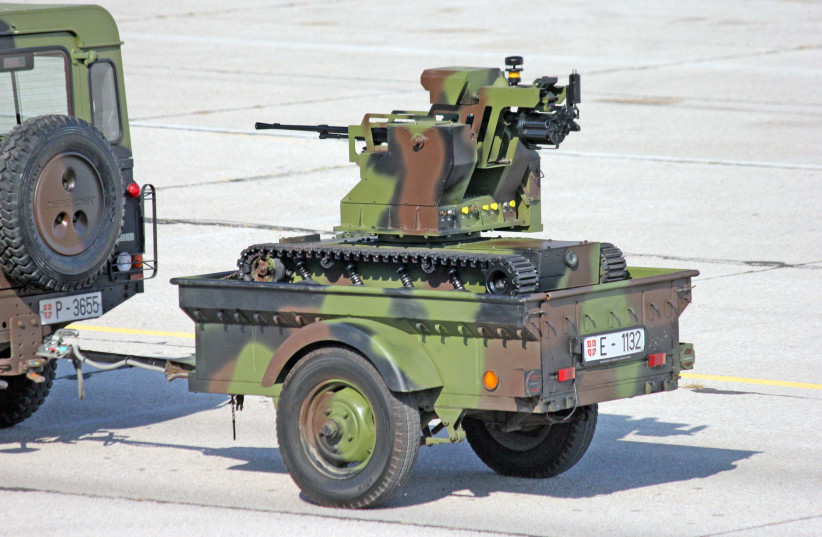AI weaponry on the horizon for world powers – report
The United States and China are slugging it out in an ongoing tech war revolving around the future of artificial intelligence (AI), according to a news release from GlobalData, a London-based data analytics and consulting company.
Both nations are doing their best to keep the other from acquiring technology and materials that would, among other things, enhance their military’s ability to use and develop AI.
Increasing restrictions are inviting tit-for-tat responses.
For instance, according to the report, in response to the US’s CHIPS and Science Act, a move that would limit China’s access to US chip manufacturing technology, and other export restrictions, China responded by implementing export controls on gallium and germanium, materials used in manufacturing solar cells and semiconductors.
In fact, on Wednesday, Reuters reported that a Chinese embassy spokesperson in Washington said that China was ‘very disappointed’ that the US decided to prohibit some investments in technology.
 Land Rover Defender i robot Miloš (credit: Wikimedia Commons)
Land Rover Defender i robot Miloš (credit: Wikimedia Commons)The Chinese raised concerns in a statement from the embassy spokesperson that US restrictions “seriously undermine the interests of Chinese and American companies and investors [and that] China will closely follow the situation and firmly safeguard [its] rights and interests.”
The AI industry is exploding in profitability and value. The GlobalData release noted that, while the AI market was already at $81.3 billion in 2022, in 2030, it will reach $908.7 billion, growing at the massive compound annual rate of 35.2%.
This emerging, disruptive technology has particular implications for the future of the battlefield.
“Public interest in AI has surged since the release of OpenAI’s ChatGPT in November 2022, though it has been part of military strategies for decades, said Associate Analyst, Thematic Intelligence at GlobalData, Benjamin Chin. “AI can automate and enhance all aspects of modern warfare, including training and simulation, intelligence gathering, electronic warfare, and frontline service.”
Consequently, the US and China have eager to limit each other’s progress with AI development. Still, other countries are equally looking to capitalize on the martial opportunities of AI, despite ethical concerns.
Autonomous weapons raise concerns
Lethal autonomous weapons (LAWs) are among the weapons that seem likely to become more and more relevant as militaries implement AI. Already, the US, Russia, India, and Israel have blocked UN talks on outlawing the usage of such weapons.
Chin notes that there is particular concern over autonomous systems’ ability to positively identify, target, and eliminate perceived hostile threats without human oversight. However, as with any military technology, the prospect of falling behind other countries may force militaries to integrate AI despite the ethical concerns.”





Comments are closed.